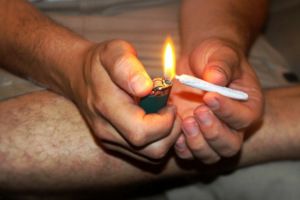News
Danish politicians looking to reduce the penalties for driving under the influence of cannabis
This article is more than 9 years old.
Proposed law would raise legal limits and lower fines

Toking and driving might get less expensive (photo: Heath Alseike)
Many motorists punished for driving under the influence of THC (tetrahydrocannabinol) – the active ingredient in cannabis – complain that the effect of the drug had long worn off. THC can be detected in the bloodstream for three months after the intake of cannabis.
And now a new bill prepared for Parliament by the Transport and Construction Ministry will seek to address this by lessening the penalties handed out to drivers with small traces of THC.
The new proposal would reduce the penalties for operating a vehicle with less than 0.003 mg of THC in the blood to a clip on the driver’s licence and a half month’s salary in fines.
Currently, all violations of the current zero tolerance policy for cannabis can cost a driver one month’s salary and an unconditional disqualification from driving for a minimum of three years.
Consequences too severe, says ministry
In June, a broad majority in Parliament discussed changing statutes that carry much more severe penalties for driving under the influence of cannabis than they do for drink driving.
READ MORE: Most Danes want to legalise weed
Hans Christian Schmidt, the transport minster, will not comment on the bill as long as it is in consultation, but the ministry has made notes on the bill concerning small amounts of THC in the blood.
“The penalty in these cases is not always proportional and can have far-reaching and unintended consequences that are not in the public interest,” it wrote in the comments.






































